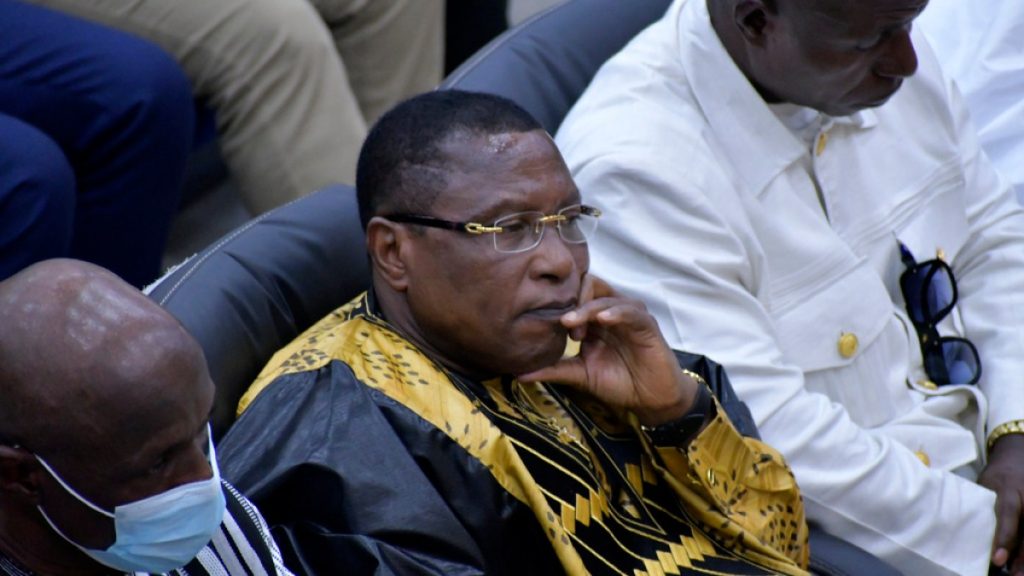The court in Guinea has sentenced former military leader Moussa Dadis Camara to 20 years in jail for crimes against humanity, following a two-year trial over the deadly suppression of an opposition rally in 2009. The court classified the charges as crimes against humanity, and Camara and seven other military commanders were sentenced, while four others were acquitted. More than 100 survivors and victims’ relatives testified in the trial, which resulted in compensation being awarded to the victims. Some relatives praised the verdict as justice, while others felt it was not enough given the severity of the crimes committed.
The lead lawyer for the plaintiffs in the case emphasized the significance of the judgement, noting that it was the first time a former head of state had been convicted for such serious crimes, along with senior military officers. This decision is seen as a step towards ending impunity in Guinea. Human Rights Watch also welcomed the verdict, stating that it sends a message to high-level perpetrators that justice can prevail. However, defence lawyers argued that reclassifying the charges as crimes against humanity on the day of the ruling could infringe on the defendants’ right to a fair trial, and both the accused and plaintiffs have 15 days to appeal the verdict.
The trial took place amidst ongoing repression by Guinea’s military rulers of the opposition and the media. Despite the landmark verdict, the repression continues, reflecting the challenges faced by those seeking justice and accountability in the country. The court’s decision has raised hopes that justice can prevail even in the face of such repression, but it also highlights the challenges and risks involved in holding high-ranking officials accountable for their actions.
The court’s ruling serves as a reminder that those responsible for atrocities will be held accountable, even if it takes years for justice to be served. The compensation awarded to the victims provides some measure of recognition for the harm they have suffered, although for some, the emotional and psychological scars will never fully heal. The trial has shed light on the brutality and violence perpetrated by the military during the 2009 massacre, and it is hoped that the verdict will bring some closure to the victims and their families.
While the verdict represents a significant step towards accountability and justice in Guinea, it also highlights the need for continued efforts to address past atrocities and prevent future violations. The ongoing repression of the opposition and the media underscores the importance of ensuring that perpetrators are held accountable and that the rule of law is upheld. The court’s decision should serve as a warning to those in positions of power that they are not above the law and that justice will eventually prevail. Ultimately, the verdict stands as a beacon of hope for those seeking justice and accountability in a country plagued by violence and impunity.


